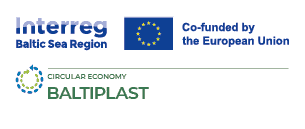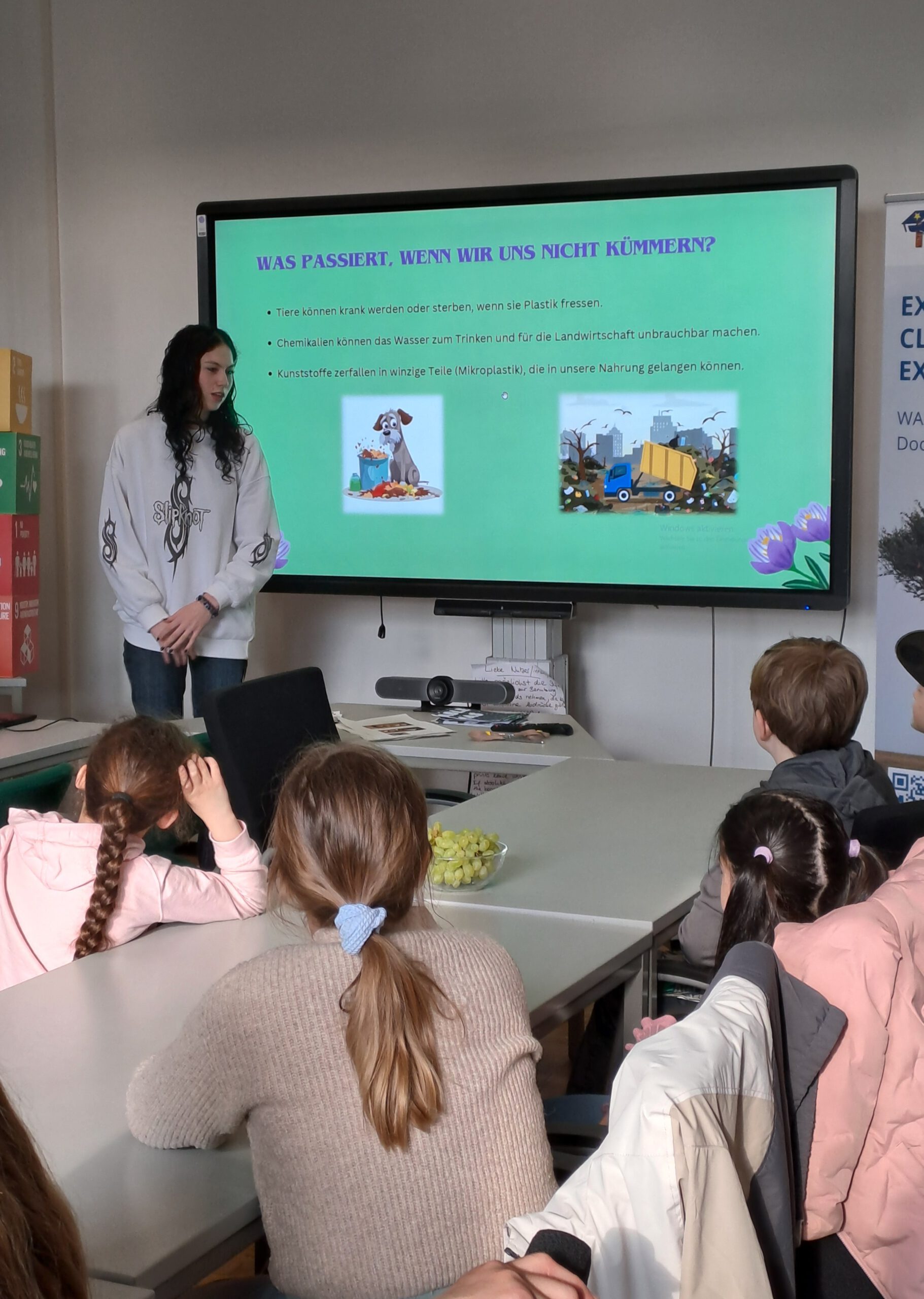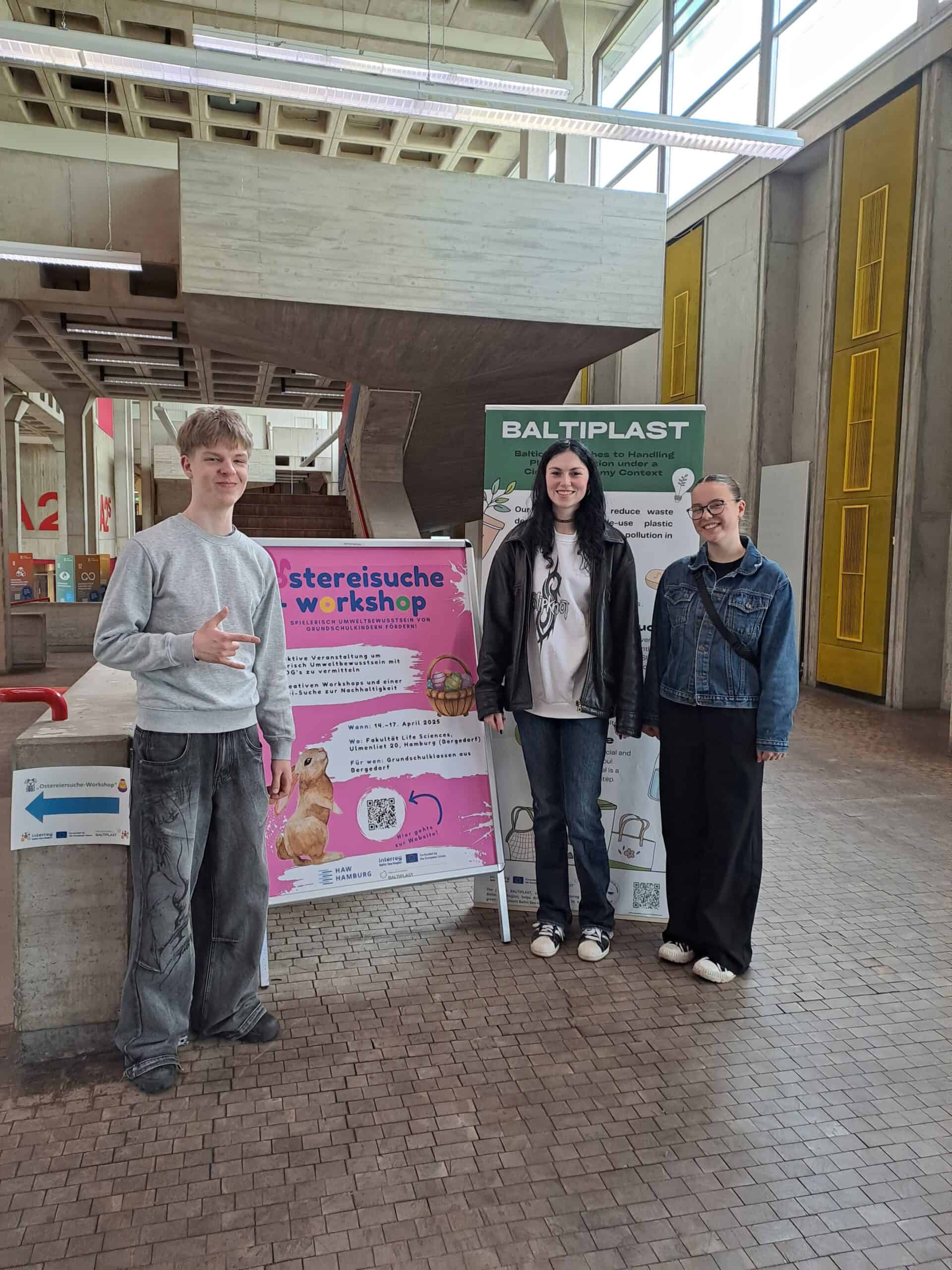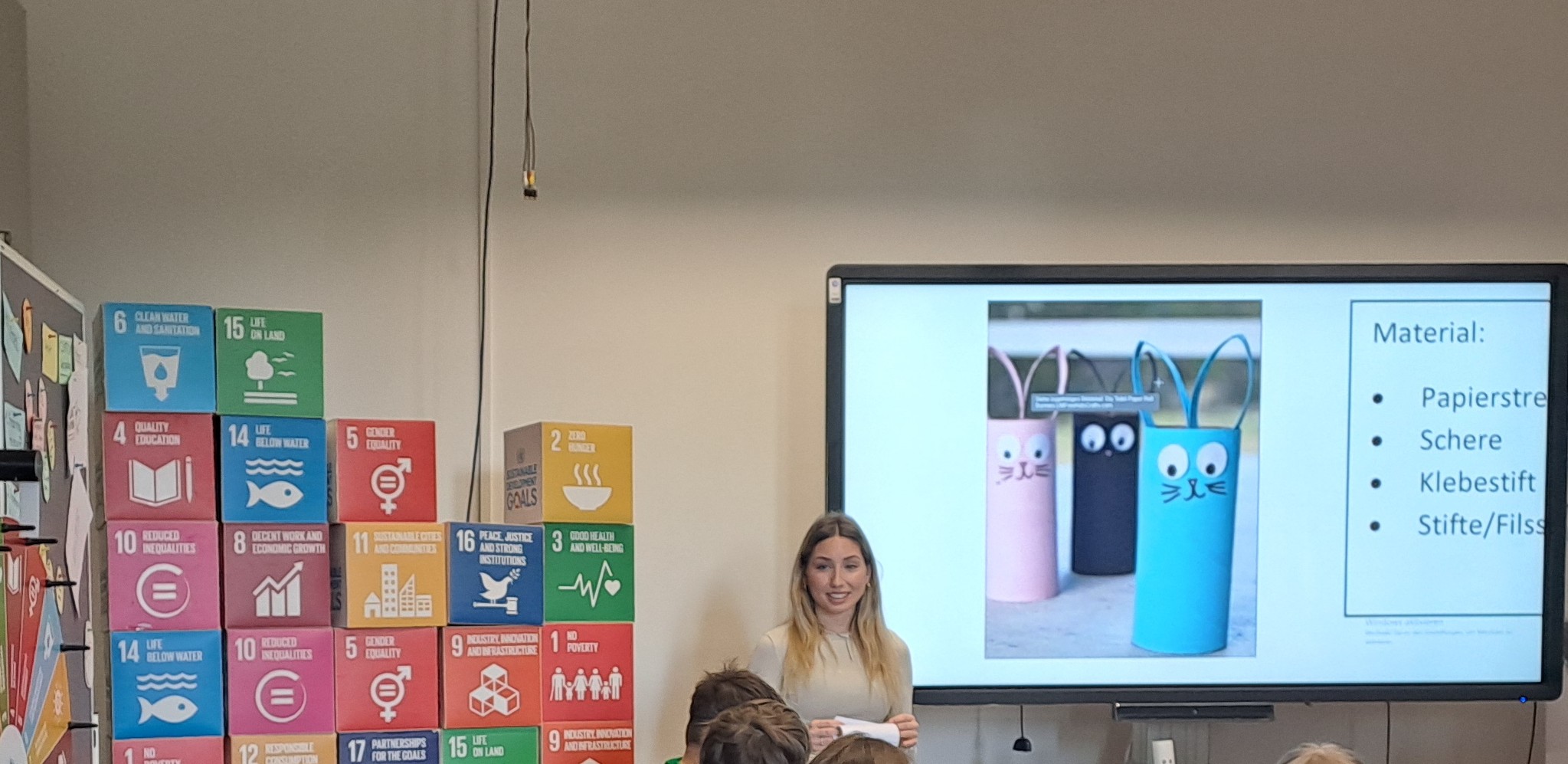
Easter Egg Hunt
17 April 2025
As part of its commitment to raising awareness around plastic pollution and sustainable living, the BALTIPLAST project recently organised a successful Easter Egg Hunt Workshop Series at the Faculty of Life Sciences, Hamburg University of Applied Sciences (HAW Hamburg). The initiative was designed to engage young learners from the local community in environmental education through interactive and age-appropriate activities.
The workshops, held over several days in mid-April 2024, welcomed more than 160 pupils and accompanying teaching staff from two primary schools in the Bergedorf area: Leuschnerstraße School and Sanderstraße School.
Supporting Local Engagement Through Education
The event aimed to strengthen ties between the university and the local community by offering pupils an opportunity to visit the campus, engage with sustainability topics, and participate in practical learning experiences. In line with BALTIPLAST’s objective of promoting behavioural change and awareness around single-use plastics (SUPs), the workshops introduced children to the issue of plastic pollution and its environmental impact.
Using visual posters and hands-on examples, the sessions demonstrated how SUPs affect ecosystems, wildlife, and human health. Through discussions and creative activities, pupils learned about the persistence of plastic waste in nature, the concept of microplastics, and how everyday actions—such as choosing reusable containers—can contribute to reducing environmental harm.
Linking Play with Purpose: The Easter Egg Hunt
A highlight of the workshop was an educational Easter Egg Hunt designed to introduce participants to selected Sustainable Development Goals (SDGs), including SDG 3 (Good Health and Well-being), SDG 4 (Quality Education), SDG 7 (Affordable and Clean Energy), SDG 12 (Responsible Consumption and Production), SDG 13 (Climate Action).
Each egg hidden around the campus grounds contained an engaging fact or reflection question related to one of the SDGs, enabling participants to make connections between global sustainability goals and their own everyday behaviours.
Fostering Awareness and Inspiration
The Easter workshop series served not only as an outreach activity but also as a platform to inspire future interest in environmental science and higher education. Pupils experienced the university environment first-hand and engaged with student facilitators, gaining insights into the value of academic learning and scientific inquiry in tackling real-world challenges.
By hosting the event on campus and involving young learners from nearby schools, BALTIPLAST contributed to increasing sustainability literacy among the younger generation in the Bergedorf district. The activity reflects the project’s broader aim to support local-level change by making sustainability both understandable and accessible.
The BALTIPLAST team would like to extend its sincere thanks to the participating schools, their dedicated teachers, the students and volunteers who supported the implementation of the workshops.









